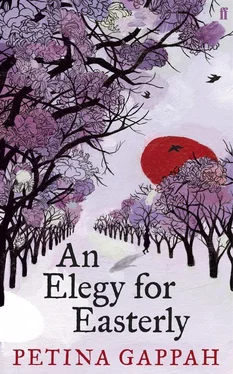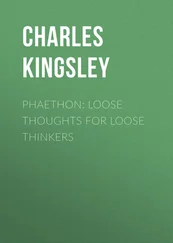Petina Gappah - An Elegy for Easterly
Здесь есть возможность читать онлайн «Petina Gappah - An Elegy for Easterly» весь текст электронной книги совершенно бесплатно (целиком полную версию без сокращений). В некоторых случаях можно слушать аудио, скачать через торрент в формате fb2 и присутствует краткое содержание. Год выпуска: 2009, Издательство: Faber & Faber, Жанр: Современная проза, на английском языке. Описание произведения, (предисловие) а так же отзывы посетителей доступны на портале библиотеки ЛибКат.
- Название:An Elegy for Easterly
- Автор:
- Издательство:Faber & Faber
- Жанр:
- Год:2009
- ISBN:нет данных
- Рейтинг книги:4 / 5. Голосов: 1
-
Избранное:Добавить в избранное
- Отзывы:
-
Ваша оценка:
- 80
- 1
- 2
- 3
- 4
- 5
An Elegy for Easterly: краткое содержание, описание и аннотация
Предлагаем к чтению аннотацию, описание, краткое содержание или предисловие (зависит от того, что написал сам автор книги «An Elegy for Easterly»). Если вы не нашли необходимую информацию о книге — напишите в комментариях, мы постараемся отыскать её.
An Elegy for Easterly — читать онлайн бесплатно полную книгу (весь текст) целиком
Ниже представлен текст книги, разбитый по страницам. Система сохранения места последней прочитанной страницы, позволяет с удобством читать онлайн бесплатно книгу «An Elegy for Easterly», без необходимости каждый раз заново искать на чём Вы остановились. Поставьте закладку, и сможете в любой момент перейти на страницу, на которой закончили чтение.
Интервал:
Закладка:
She flipped through True Love magazine.
Your eyes met as you passed to take your seat.
You did not like her eye make-up.

In the golden triangle your children speak only English, English sentences that all begin ‘Mummy I want …’, ‘Mummy can you buy me …’, ‘Mummy where is daddy?’ Daddy is often not there, he is out doing the deals and playing the golf that ensures that you continue to live in the golden triangle. You say this to the children, but your son is old enough to know that golf is not played in the pitch blackness of the night. You stop his questions with a shout. He turns and locks himself in his room.
You breathe out your remorse at yelling at your son but you cannot tell him the truth. That you share your husband with another woman.
Imbadiki , she is called. That is not her real name; that only means she inhabits the small house while you live in the big one in the heart of the golden triangle. Her name is Sophia. She is twenty-five years younger than your husband. You know this because you had your husband followed. Not that he even tried to hide it. No man can be expected to be faithful, he has said often enough. It is not nature’s intention. He said the same thing to you when you met in secret away from the eyes of his first wife.
And as you gasped beneath him, above him and beside him, as he put his hands on your haunches and drew you to him, you agreed, no man could be expected to be faithful, yes, you said, oh yes, you said, just like that, you said, right there. You are fifteen years younger than he is, and his wife before you was five years younger than he was. You go to the gym, where you have a girl who plucks the hair out of your eyebrows, and the hair from under your arms, and the hair from your pubis. You pay someone to scrub your feet and to pummel you with hot stones.
The small house cannot become the big house.
You worry because you have not found condoms in his pockets. You find yourself hoping that he keeps them in the small house. You watch for the tell-tale signs of illness which crosses over into the golden triangle and touches your gardener Timothy and your security guard whose name you can never remember. They both have the red lips that speak their status. The only red lips you want are from lipstick but you fear that you may have them too if your husband continues to establish small houses all over the city.
You have parties in the golden triangle, where men braai meat and talk about business while you sit with other women and talk about, you are not really sure what you talk about. You see your friends at these parties, Laetitia, who used to be a teacher before she married a banker. Tendai, who used to be a model before she married a banker. Bertha who used to be a secretary before she married a banker. You talk about your old friend Norma who used to be the small house of a banker before she married him, and who was evicted from the golden triangle, and now lives in a house in Ashdown Park that has a yard of only a quarter of an acre.
‘ Akadhingurwa Norma,’ you laugh about it when you are drunk with your friends and Oliver Mtukudzi is playing on the stereo. In all the malice of your Schadenfreude , you make it all about her, she was getting full of herself, Norma, you all agree. Away from your friends, the ice grips your heart and you work out twice as long at the gym to keep Norma’s fate from your door.
You watch Timothy plant birds of paradise in the narrow space between the lawn and the driveway. You imagine the driveway lined with the flowers, driving through four hundred metres of birds of paradise, driving past their purple and orange plumes. You have the sudden urge to scream, but you don’t know why, all you know is that no one can hear if you scream behind your walls; your echoes will be absorbed in the verdancy of your garden, in the garden furniture that you imported from Italy. Your scream will bounce off your Jackson Munyeza tennis court to ripple silently in your Jackson Munyeza swimming pool.
You see yourself at sixteen, always you go back to how you were at sixteen, surrounded by other schoolgirls in a world where achievement was everything. Who gets best marks, who can run the fastest, who can come up with the best tricks to plague the nuns. You were happy to see an old school friend the other day, and you fell into each other’s arms. Your voices rang out as you cried out in happy reminiscence.
Do you remember, do you remember?
She turned to your children and said, ‘Your mother was a really good discus thrower,’ and she turned to you and said it was nice to see you Catherine, and you did not tell her that your name was not Catherine, she had confused you with someone else because you did not throw the discus at all.
‘It was the javelin,’ you say to yourself at the traffic lights. It is all you can do to stop yourself crying. ‘It was the javelin.’ High, high, flew the javelin, higher, always higher. The cars behind you honk. Moments later, you turn into Glenara. You drive over three potholes, one after the other, but in the cushioned comfort of your four-by-four, you don’t feel a thing.
The Mupandawana Dancing Champion
When the prices of everything went up ninety-seven times in one year, M’dhara Vitalis Mukaro came out of retirement to make the coffins in which we buried our dead. In a space of only six months, he became famous twice over, as the best coffin maker in the district and as the Mupandawana Dancing Champion.
Fame is an elastic concept, especially in a place like this, where we all know the smells of each other’s armpits. Mupandawana, full name Gutu-Mupandawana Growth Point, is bigger than a village but it is not yet a town. I have become convinced that the government calls Mupandawana a growth point merely to divert us from the reality of our present squalor with optimistic predictions about our booming future. As it is not even a townlet, a townling, or half a fraction of a town, there was much rejoicing at a recent groundbreaking ceremony for a new row of Blair toilets when the District Commissioner shared with us his vision for town status for Mupandawana by the year 2065. Ours is one of the biggest growth points in the country, but the only real growth is in the number of people waiting to buy coffins, and the lengthening line of youngsters waiting to board the Wabuda Wanatsa buses blasting Chimbetu songs all the way to Harare.
You will not find me joining that queue out of Mupandawana. When the Ministry despatched me here to teach at the local secondary, I was relieved to escape the headaches of Harare with its grasping women who will not let go until your wallet is empty. Mupandawana is the perfect place from which to study life, which appears to me to be no more than the punchline to a cosmic joke played by a particularly mordant being.
So I observe life, and teach geography to schoolchildren whose only interest in my subject is knowledge of the exact distance between Mupandawana and London, Mupandawana and Johannesburg, Mupandawana and Gaborone, Mupandawana and Harare. If I cared enough, I would tell them that there is nothing there to rush for, kumhunga hakuna ipwa , as my late mother used to say.
But let them go, they shall find out soon enough.
Mine is not a lonely life. In those moments when solitude quarrels with me, I enjoy the company of my two friends, Jeremiah, who teaches agriculture, and Bobojani who goes where Jeremiah goes. And then there are the Growth Pointers, as I call them, the people of Mupandawana whose lives prove my theory that life is one big jest at the expense of humanity.
Take M’dhara Vitalis, the coffin maker.
Читать дальшеИнтервал:
Закладка:
Похожие книги на «An Elegy for Easterly»
Представляем Вашему вниманию похожие книги на «An Elegy for Easterly» списком для выбора. Мы отобрали схожую по названию и смыслу литературу в надежде предоставить читателям больше вариантов отыскать новые, интересные, ещё непрочитанные произведения.
Обсуждение, отзывы о книге «An Elegy for Easterly» и просто собственные мнения читателей. Оставьте ваши комментарии, напишите, что Вы думаете о произведении, его смысле или главных героях. Укажите что конкретно понравилось, а что нет, и почему Вы так считаете.












